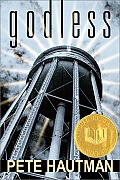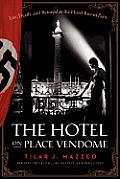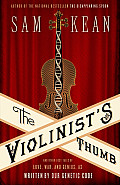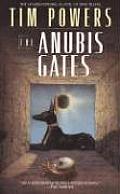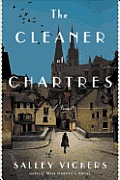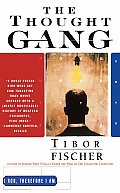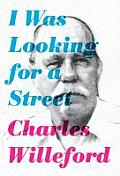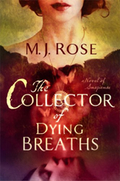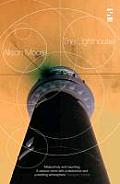Link to this review in the form of a comic strip by geneambaum tagged coming of age
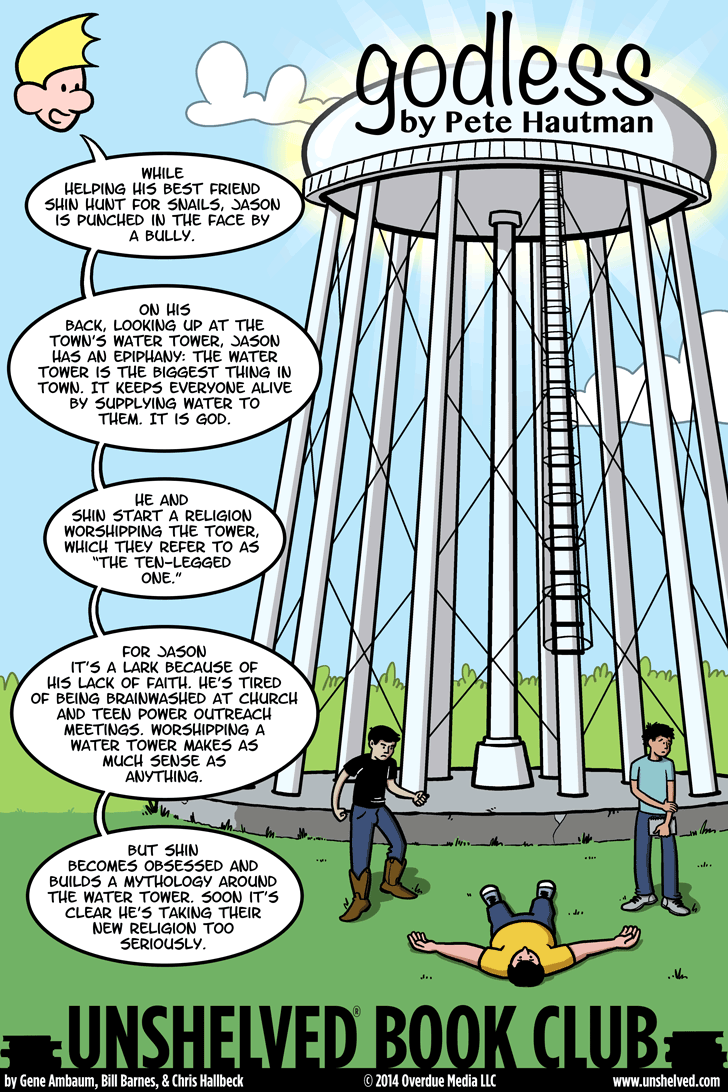
Click for the full-sized comic
@bookblurb Jason and Shin start a religion worshipping their town’s water tower.
Link to this review by wally tagged nonfiction
The Hotel Ritz is probably one of the most famous hotels in the world, and this history of the place makes it clear why: everyone who was anyone in the first half of the 20th century stayed there, sometimes for years. The Ritz also figured heavily in World War Two as the luxurious home of some of the highest ranking Nazi officers in occupied Paris, even though the French and German resistance operated in part out of the same hotel.
Why I picked it up: Paris is one of my favorite cities, and while I’ve been aware of the Hotel Ritz as a destination and home of the rich and famous, I had no idea how much the place really mattered, especially during the Second World War.
Why I finished it: Mazzeo relates some incredible stories: Marcel Proust was so distressed by the sound of motorcars he had his permanent room lined with cork board, Hemingway spent much of the Liberation drunk on champagne there, and how Frank Meier, the Jewish bartender, assisted German resistance operatives living in the hotel.
It’s perfect for: My cousin Boots, who has spent almost as much time in Paris as in her American home, yet who would still be surprised by some of the details of the Ritz’s history. It became the home and the haunt of early supporters of the writer Émile Zola after he stood up against the French Army during the Dreyfus Affair, and how the Nazis later used some of the rooms to interrogate and torture people suspected of being in the French Resistance.
@bookblurb Everyone who is anyone stayed at the Hotel Ritz in Paris in the first half of the 20th century.
Link to this review by emilyreads tagged science
Science writer Kean (The Disappearing Spoon) takes on DNA in this engaging, comprehensive look at the building blocks of our human nature. Starting with the earliest notions of inherited traits and going through the recent race to sequence the human genome, Kean explores facts and common fallacies about our chemical makeup, with enough colorful characters to populate a scientific sitcom. Our genes may not control our destiny, or even make us particularly interesting as a species, but they’re still fun to read about.
Why I picked it up: I enjoy pop science books, and this one seemed like the right blend of hard facts and wacky anecdotes.
Why I finished it: Kean’s narrative hops around temporally and topically, and each chapter is a new adventure. Just how ugly were the Hapsburg monarchs? How often did protohumans and protochimps get it on over the last few millennia?
It’s perfect for: My high school biology teacher, Mr. Motz, who — like the author — could spin a good yarn as well as he could break down the fundamentals of mitosis and meiosis.
@bookblurb An engaging, comprehensive look at DNA.
Link to this review by geneambaum tagged historical fiction • science fiction
Brendan Doyle, a scholar, is rushed 6,000 miles for a job interview that has something to do with his knowledge of the life and works of Samuel Taylor Coleridge. Incredulous, he is offered $20,000 to help escort a group of rich folks to a lecture at a tavern in 1810. He is to answer their questions and take notes, and then return with them. The journey is real, and Doyle even has a chance to meet Coleridge. But before he can make the jump back with the others, Doyle is kidnapped by agents of a mysterious sorcerer.
Stranded in 1810, he thinks it will be easy to make a life for himself because of what he knows about the time period. He’s wrong. Despite his education, the best way he can earn money is by begging. It’s a fairly miserable life, but Doyle has one last hope. He decides to try to use his knowledge of the mysterious poet William Ashbless, who is due to arrive in London shortly, to convince the man to help him.
Why I picked it up: It won the Philip K. Dick Award. Plus, for years, I’ve seen shelf talkers and reviewers praise it as the the best time travel novel ever. It was time to find out if the superlative was true.
Why I finished it: It’s right up there with John Crowley’s Great Work of Time and Groundhog Day. Plus it brings to life a time in England that I have always been curious about. I was a real sucker for the Romantic poets back when I was still studying English lit. Plus the twists and turns are glorious. Doyle is soon trying to avoid a mad dwarf on stilts, locate the bodysnatching being who is the source of all the werewolf rumors, and figure out why he keeps hearing the Beatles’ “Yesterday” whistled in London.
Readalikes: Charles Willeford’s autobiography about being a kid in 1920s Los Angeles and then hitting the road as a teen during the great depression, I Was Looking For A Street, because it’s the only other book I’ve read recently that also gave me a sense of such a real, historic time and place.
@bookblurb A time-traveling poetry scholar trapped in 1810 London tries to survive bodysnatchers, a sorcerer, and a werewolf.
Link to this review by darcy tagged literary
Twenty years ago, Agnès Morel arrived in the town of Chartres, at the Notre-Dame cathedral. She was a young woman and nobody knew exactly what her story was. Rumors circulated about her life with the nuns and an early pregnancy, but no one knew the full story.
Now she has become a part of the village. She has such a reassuring personality that many feel drawn to her. When she is asked to take on the job of cleaning the cathedral, she is happy to agree as she finds the work soothing. Soon she is cleaning houses and helping Professor Jones organize his papers. Not everyone loves Agnès, however. The elderly Madame Picot becomes jealous of the attention Agnès receives and starts vicious rumors about her.
Why I picked it up: I was attracted to the cover, which showed a lone woman walking down a cobblestone street in an old village toward a cathedral. I wanted to know if she was running toward it or leaving something behind.
Why I finished it: Agnès is immediately likable. From the outside she seems simple, but she is very complex inside. Because no one knows her history, she’s always been mysterious to the citizens of the well-established medieval town, and after twenty years living there she is still an enigma. Even though the story takes place in modern times, there is something unique and even old-fashioned in Agnès, from her gentle spirituality to her colorful attire. Throughout the narrative there are hints about her history from the nuns who found her and cared for her as a child.
It’s perfect for: Fans of Joanne Harris’ Chocolat, which also features a woman in a town where she is an outsider, struggling to fit in to a small village with its own traditions. Both books feature intertwined stories of lovers and gypsies, and have threads of religious symbolism.
@bookblurb After 20 years in Chartres, Agnès is part of the village, and takes on the task of cleaning the cathedral.
Link to this review by wally tagged literary • mystery
Eddie Coffin, an alcoholic philosophy professor, must leave Britain to escape scandal. When he arrives in France, he is held up at gunpoint by Hubert, a short, young failure of a criminal with an artificial leg and hand, whose gun has no bullets. Their meeting leads to a mutual interest in money without work, however, and they soon go on a continent-wide crime spree, invent the getaway lunch, and gain notoriety for advertising ahead of time which banks they plan on robbing.
Why I picked it up: Fischer’s book Under the Frog was shortlisted for the Booker prize, and the prospect of a philosopher-turned-criminal was too good to pass up.
Why I finished it: Fischer’s wordplay is hilarious, whether he’s coining words or having Eddie use every word that begins with the letter “z.”
It’s perfect for: Curt, who would love the slowly building plot as Eddie, Hubert, and Jocelyne (a former bored bank teller and Eddie’s new girlfriend) plan and carry out their greatest heist while discussing philosophy — it’s part of the general chitchat, and there’s always a philosophical angle to their next bank job.
@bookblurb An alcoholic philosopher and his would-be robber go on a crime spree.
Link to this review by geneambaum tagged coming of age • biography
After his parents died and his extended family broke up, Willeford spent two years at the McKinley Industrial School for Boys outside of Los Angeles. He visited his grandmother for a weekend once a month until, when he was ten, she felt she could take care of him and took him in. He lived with her for a few years before running away to travel the country as a road kid during the Depression. Willeford spent time riding the rails, in organized hobo camps and taking shelter in abandoned buildings. He is able, at the end of his tale, to relate the painful story of the amazing cowboy hat he acquired and why he owned it for such a very short period of time.
Why I picked it up: I really enjoyed Willeford’s dark crime novels Pick-Up and The Burnt Orange Heresy, so I ordered a few more of his books from the library. Elmore Leonard’s blurb on the inside front flap made this one immediately compelling. “I’m proud to say I knew the man who wrote this book. It is pure writing, never pretentious or forced, never melodramatic, but honest storytelling of the highest order…”
Why I finished it: The writing is wonderfully straightforward, and the funny moments are always subtle and seem to come out of nowhere. Willeford’s grandmother doesn’t pay attention to what he reads, so he’s able to rent racy books from the department store where his grandmother worked, and use them to correct the misinformation about sex that he’d learned at McKinley. On the road he meets a one-armed man who asks Willeford to roll him a cigarette, which he can’t do himself. Willeford has been practicing a one-handed roll for weeks and, when he does it without thinking, the man curses Willeford. And there are horrible moments, too: Willeford helps a boy who lost his foot to a train, and he nearly freezes to death in a blizzard.
Readalikes: My favorite book about a road trip, An Abundance of Katherines, which has many funny moments. And my favorite graphic novel about hitting the road, Liz Baillie’s Freewheel, in which a young girl searching for her brother discovers a hidden forest village full of people that don’t fit into regular society. Willeford’s tales of homeless camps reminded me of that book.
@bookblurb Charles Willeford’s memoir of his boyhood in Los Angeles and hitting the road as a teen during the Great Depression.
Link to this review by danritchie tagged paranormal • historical fiction • mystery
In 1573, René le Florentin, an apprentice perfumer, agrees to poison his master, Dom Serapino. Serapino believes that the right mixture of herbs, spices and exotic ingredients, when mixed with the last breath, can reanimate the dead. René captures Serapino’s dying breath and tries to revive his master. He fails. Accused of murder, René awaits his fate. Young Catherine de Medici visits the apprentice and offers to spare his life in return for his allegiance. René becomes her royal perfumer, pursues a lifelong search for the elixir to reanimate the dead, and creates much more than fragrances for his Queen.
In present day France, Jac L’Etoile channels her personal grief at her brother’s death into continuing his quest: to find René le Florentin’s lost formula for bringing back the dead. She has the bottle containing her brother’s last breath, along with his notes. As instructed by her dying brother, she contacts an eccentric and very wealthy young woman who will do anything to possess the elixir.
Why I picked it up: The title and the connection to Catherine de Medici. I recall the intrigue that surrounded her rule from my college history classes, and wanted to see how her role played out.
Why I finished it: After discovering René’s laboratory, Jac and her former lover, Griffin, slowly piece together the formula and the necessary ingredients. Jac also begins experiencing ever stronger episodes from the life of René, including his struggle to save the woman he loves from his evil Queen. She has experienced past life episodes before, and these are overwhelmingly familiar. The powerful connection between René’s desperation and devotion to his lover mirror Jac’s feelings in reconnecting with her former lover, Griffin.
It’s perfect for: Dyan. She’ll love the complexity and delusory aspects of the two parallel love stories. René, desperate to be with Isabeau, one of Catherine’s spies, finds himself caught between his loyalty to his Queen and to his lover. Jac, who believes she has already cost Griffin his life in two past incarnations, faces the risk of losing him.
@bookblurb An elixir that can reanimate the dead is at the heart of two intertwined stories that take place centuries apart.
Link to this review by emilyjones tagged literary
Futh is a middle-aged, socially awkward, and unhappy man, lost in the memory of his mother leaving his family when he was a young boy. Having recently split up with his wife, he goes on a walking trip in Germany, replicating a holiday he took with his father as a child.
Why I picked it up: The book club I joined in Auckland has highbrow tastes compared to other groups I’ve been in, and they picked this one based on the fact it was shortlisted for the 2012 Man Booker Prize.
Why I finished it: Nearly every chapter title is a scent that plays a role in the story (“Violets,” “Oranges,” “Disinfectant,” “Stewed Apples”), and the way the author weaves them together to an unexpected climax left me breathless. I associate scents with events, and I could immediately relate to Futh’s relationship with smells and how they triggered his childhood memories.
It’s perfect for: Darcy, who will be in awe of the author’s use of spare, concise sentences and seemingly simple words. The book at first may come off as uncomplicated, but each sentence is carefully crafted and its imagery brought all of my senses to life.
@bookblurb An unhappy, awkward man goes on a walking trip in Germany to replicate a childhood journey.
